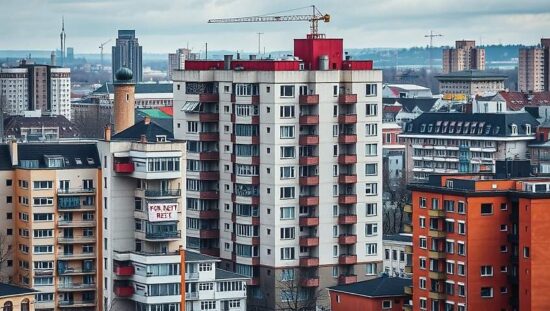A significant decline in the number of social housing units in Germany has been reported, with the total stock decreasing by around 26,000 units to approximately 1.05 million by the end of 2024, according to the government’s response to a Left Party inquiry.
This marks a new low in the history of social housing in the country, with the number of publicly subsidized homes decreasing by a significant margin over the past decade. Ten years ago, there were around 1.5 million social housing units and in the early 1990s, the number had reached approximately three million.
Caren Lay, a Left Party member of the German Bundestag and chair of the Committee on Housing, Urban Development, Building and Communes, criticized the government’s failure to deliver on its promises to increase the number of social housing units. “The number of social housing units has decreased again in the past year” Lay said. “There are no longer social housing units, but rather around 26,000 fewer than the previous year. This is a new historical low.”
The government had pledged to increase the budget for social housing and had announced a trend reversal in social housing construction. However, Lay warned that the planned slight increase in the budget for social housing would not be enough to halt the negative trend, as the special fund for social housing had not been planned accordingly. The Left Party politician emphasized the need for a minimum of 20 billion euros in annual funding for social and non-profit housing, rather than the seven-year plan proposed by the government.
Furthermore, Lay called for a stronger regulation of rents, arguing that the government’s plan to promote private housing construction without rent caps was the wrong approach. “The dramatic increase in rents must finally be stopped” she said.





